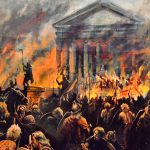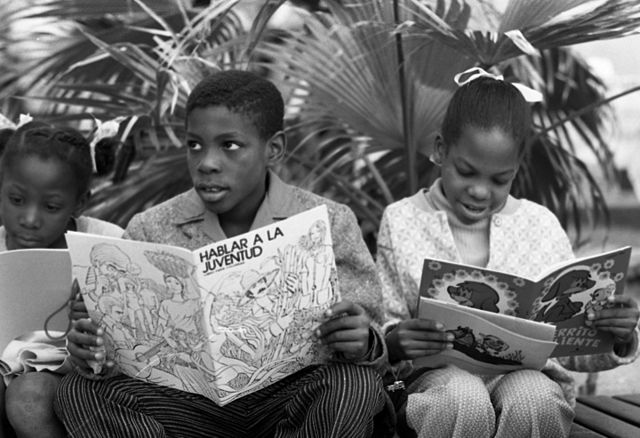Introduction to Literatures and Cultures of the Romance World II: Modern to Post-Modern
Italian Mafia Movies
Cross-listed with ITAL234
The association of the mafia with Italy is one of a handful of prevailing cultural metaphors about the country that unfailingly provoke a broad spectrum of impassioned responses from both Italians and non-Italians. This course argues that cinema has fundamentally shaped our perceptions and emotions about the mafia. We trace the lineaments of a cinematic genre born from the American and Italian milieus: the mafia movie. Diverse theses about Italian-origin organized crime, including the Cosa Nostra, Camorra, ‘Ndrangheta, Banda della Magliana, and others, are proposed in these films, which sometimes highlight anti-mafia activities and individuals. We conduct formal film analysis while attending to the socio-historical and cultural contexts of the production of the films or the historical periods depicted in the films. The guiding question of the course is not whether these filmic representations accurately depict the mafia and their contestations. Rather, we seek to unravel the representational complexities, intentions, and agendas of the movies and of the genre. In this way, we gain a cinematic key to understanding Italian mafia which complements relevant historical and empirical studies.
Language of instruction: English
Prerequisites: No prerequisites
Instructor: Gaoheng Zhang
Grading Breakdown:
Critical essay 1: 25%
Critical essay 2: 25%
Four improvised oral presentations and written reports: 40%
Class participation, regular attendance, and professionalism: 10%
Readings:
Coming soon
Modernism to Present
Course trailer:
Course user's manual:
Course description:
 In this course, we will be reading literary texts, mostly novels, originally written in French, Spanish, Portuguese, Italian, Catalan, or Romanian during the twentieth and twenty-first centuries. Some are by authors you may have heard of, others are more obscure, but each has been judged noteworthy or influential. That does not mean you will always enjoy them, but they will be worth reading. Each text provides food for thought and analysis, and so helps us meet this course’s first and minimal goal: to engage with a series of interesting and challenging texts, figure out strategies to read them well, and expand our horizons through this exploration of new texts, new readings. If we achieve nothing else, I will be happy, and you should be, too.
In this course, we will be reading literary texts, mostly novels, originally written in French, Spanish, Portuguese, Italian, Catalan, or Romanian during the twentieth and twenty-first centuries. Some are by authors you may have heard of, others are more obscure, but each has been judged noteworthy or influential. That does not mean you will always enjoy them, but they will be worth reading. Each text provides food for thought and analysis, and so helps us meet this course’s first and minimal goal: to engage with a series of interesting and challenging texts, figure out strategies to read them well, and expand our horizons through this exploration of new texts, new readings. If we achieve nothing else, I will be happy, and you should be, too.
A second and more ambitious goal is to seek patterns of commonality and difference between our readings. What, if anything, binds these particular texts together? What concerns do they share? Alternatively, what makes each one different and distinct? Can we see tendencies or changes over time or according to the various (historical, geographical, social) contexts in which they were written?
All these texts are presented under the rubric of “Romance Studies.” Though we are reading these books in English, none of them were written originally in that language; each was first written in a language that derives from Latin. The question is whether this distinction is arbitrary or significant. Do these texts have anything in common simply thanks to the fact that they share, to a greater or lesser extent, some common linguistic heritage? Are they different in any coherent way from texts written in other languages? What, in short, if anything, is distinctive and different about “Romance Studies”? Responding to this difficult question is the third and most fundamental of this course’s goals. We may well fail to achieve it, which is fine, but this is the challenge we are set.
 The Romance languages are Latin’s bastard offspring, forged in the encounter with the Barbarian hordes that destroyed Rome and its so-called civilization. It is not tradition that they share, but their betrayal of that tradition. They are not founded on the classics; they are what usurped the classics and illegitimately took their place. Romance Studies emerges when tradition is infiltrated and overthrown by the demotic, by the everyday speech of a nameless multitude.
The Romance languages are Latin’s bastard offspring, forged in the encounter with the Barbarian hordes that destroyed Rome and its so-called civilization. It is not tradition that they share, but their betrayal of that tradition. They are not founded on the classics; they are what usurped the classics and illegitimately took their place. Romance Studies emerges when tradition is infiltrated and overthrown by the demotic, by the everyday speech of a nameless multitude.
We add a further measure of betrayal by reading everything in translation. Translation, with its inevitable perfidy as well as reluctant homage, is a good image for what we are up to: remaking language, taking texts out of context, helping them travel and become new. It is also of a piece with the democratizing tendency of what we are out to invent. Here there are no native speakers, no native informants. Nobody speaks “Romance.” But we effortlessly speak “not-Latin.”
How does all this square with what we will be doing as this course unfolds? On one level, little, and it is quite possible that we never again utter the phrase “Romance Studies.” The point is not to get hung up on the rubric or the bureaucratic niceties. The project is to read, to think, to come up with new concepts, to open up horizons. This is what we will be doing week by week, rather than worrying too much whether we are following the program with sufficient fidelity.
On the other hand, these concepts of betrayal and escape, miscegenation and becoming, translation and misunderstanding, error and doubt, are at the core of many of the texts we are studying. These often concern memory and recollection, infidelity and the invention of new forms of community.
Whether it is Proust meditating on his narrator’s distance from a not-so-idyllic past in a place he calls “Combray,” Alberto Moravia’s anti-Oedipal non-Bildungsroman, Agostino, Joseph Zobel’s semi-autobiographical account of the dog days of Empire in Martinique, Clarice Lispector’s description of a becoming-animal in a Brazilian servant’s quarters, or Carlos Fuentes’s tale of an American drawn to death and love in the Mexican Revolution, all these authors and texts push at limits, question the past, and break free to construct something new. They make us think differently about issues of representation and power, writing and the real, authority and authorship.

Language of instruction: English
Prerequisites: No prerequisites
Instructor: Jon Beasley-Murray